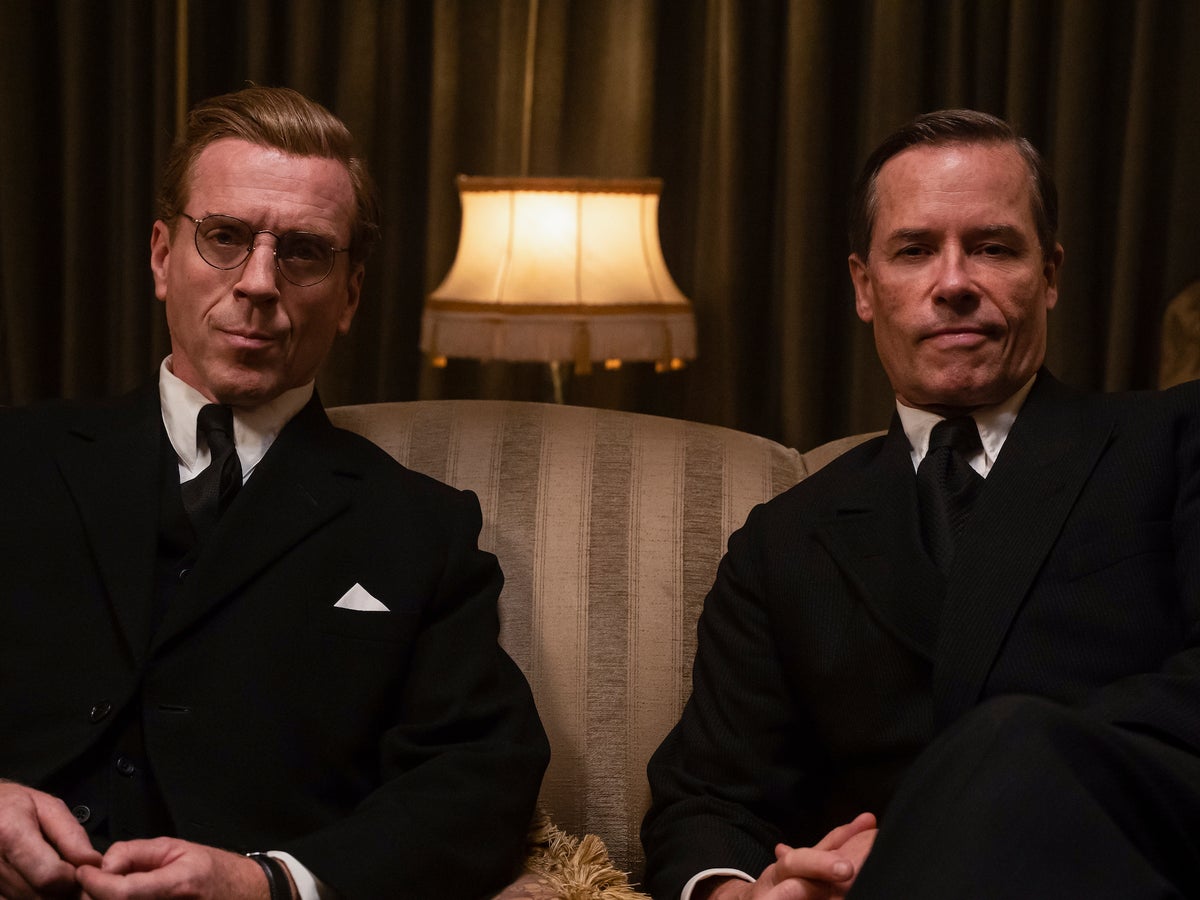
Just a couple of weeks from now, families will be gathered round Christmas trees, sharing mince pieces, singing yuletide songs, and unwrapping presents. And all over the country, dads – who’ve spent a lifetime receiving socks and ties – will be squeezing their rectangular packages. What could it be? A DVD of Saving Private Ryan? A box of Ferrero Rochers? Or the latest book by popular historian Ben Macintyre, whose accounts of modern British history are adored by men of a certain age?
Macintyre’s works include Rogue Heroes (adapted for a BBC TV series) and Operation Mincemeat (a hit in cinemas earlier this year), and the author is now making his debut on ITVX – a bold new streaming era for Britain’s third channel – with a big-budget adaptation of A Spy Among Friends, the inside story of the capture of Soviet double agent Kim Philby. Philby here is played by Guy Pearce (last seen in the Neighbours finale), while Nicholas Elliott, the SIS agent responsible for bringing him in, is depicted by Damien Lewis. It’s a high-calibre cast of men your dad probably likes from things like Band of Brothers and The King’s Speech.
The show’s central question is simple: how did Philby escape from Elliott’s clutches in Beirut, so he could abscond to Moscow? Was Elliott in cahoots? Running a secret operation? Or did Philby simply outfox his closest friend? “Do you think Philby was playing you from the first moment you met?” Anna Maxwell Martin’s Lily Thomas asks Elliott, during his lengthy interrogation. And via extensive flashbacks and other non-linear storytelling, that question faces a similarly penetrating scrutiny.
Some ink has already been spilt on the controversy surrounding Maxwell Martin’s character Lily, who is a confection of screenwriter Alex Cary. A working-class woman, with a strong northeast accent and a Black husband, seems almost purposely designed to upset tabloid columnists. “Very sure of yourself, aren’t you Mrs Thomas?” observes some fuddy-duddy spy. “Is that a problem?” she replies, coolly. But, as a creative decision, it’s less sure-footed. Each episode begins with a disclaimer announcing that “some characters and scenes have been created for dramatic purposes”, but it’s hard to get over the sense that this is a cake being both had and eaten. From TV shows such as Traitor and Cambridge Spies to The Jigsaw Man and A Different Loyalty on the big screen, the Philby tale has been told many times. The desire to tell diverse stories and the desire to tell the same stories over and over may be mutually incompatible.
But despite the overexposure of both Philby and Macintyre, there is much to enjoy about A Spy Among Friends. Lewis and Pearce are surely the most upmarket actors that ITV could afford to cast, and both bring their own delicacy to proceedings: Elliott, a brittle man reeling from betrayal, Philby, a slippery one, dealing with the fallout (“Do you think it might be possible to rustle up some marmalade?” he asks, like a forlorn Paddington Bear, as he adjusts to life in Moscow). For an ITV drama, the production design, too, is unusually lavish – influenced, perhaps, by the smoky rooms and tweedy men of Tomas Alfredson’s 2011 adaptation of Tinker Tailor Soldier Spy.
The story of Philby and the Cambridge spy ring is one of the most fascinating tales of 20th-century British history (or, as it’s now known, the Ben Macintyre Cinematic Universe). It’s a shame, then, that the questions of class, capitalism and clemency, innate to the tale, are subordinated to easy moral signposting. But, as A Spy Among Friends observes, “espionage can, at times, be intoxicating”. And the show, at its best, is like a slug of hot mulled wine – or should that be glintvein, comrade?







